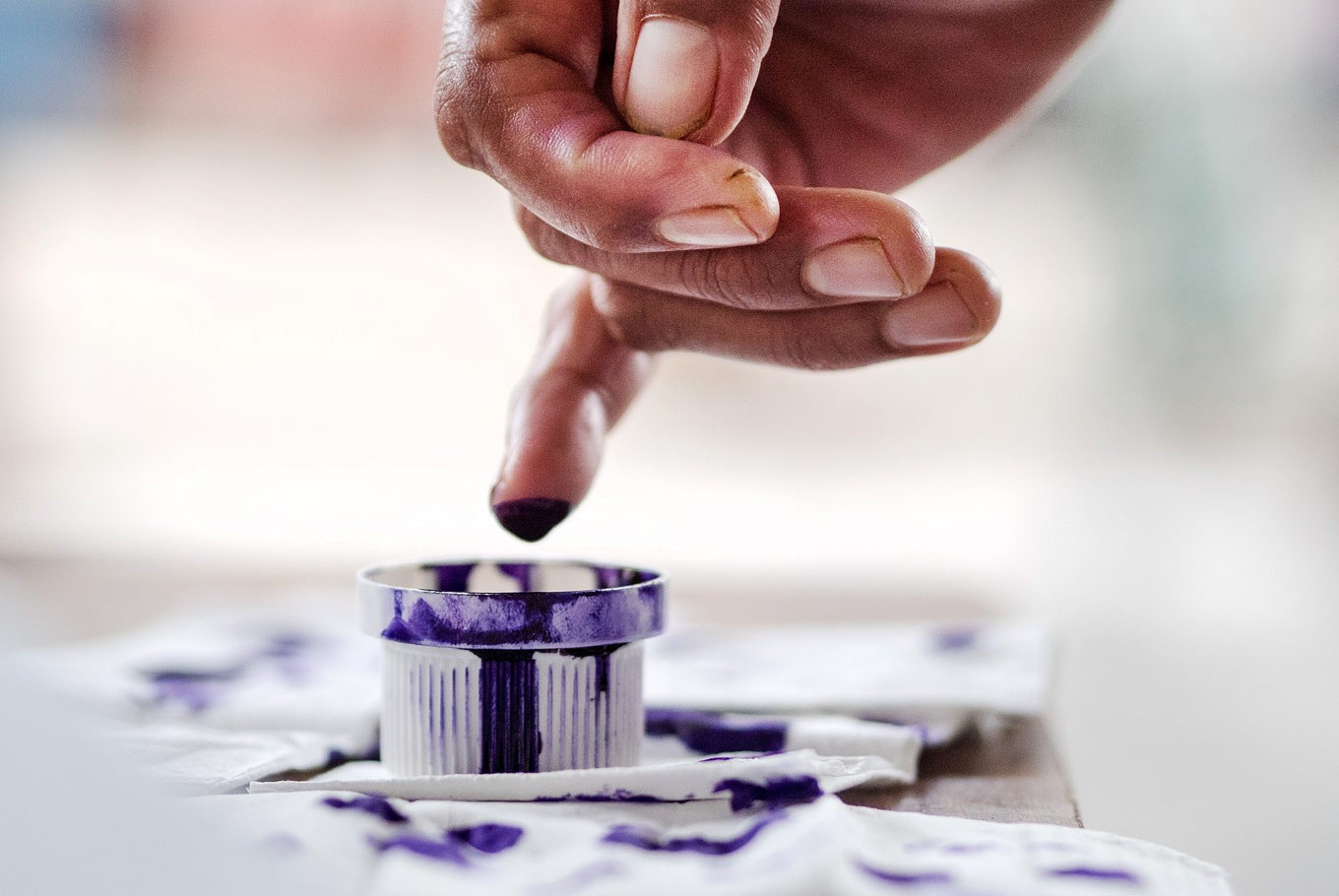Popular Reads
Top Results
Can't find what you're looking for?
View all search resultsPopular Reads
Top Results
Can't find what you're looking for?
View all search resultsHold fast to the right to vote
Home Minister Tito Karnavian has publicly supported the reinstatement of a New Order-style mechanism to elect regional heads by legislative councils, despite a statement by his boss, President Joko “Jokowi” Widodo, insisting that the current direct regional elections remain intact.
Change text size
Gift Premium Articles
to Anyone
 A man dips his finger in indelible ink in East Denpasar, Bali, after voting in the Bali gubernatorial election in June 2018. The government and the country’s biggest political parties have signaled their intention to abolish direct public participation in electing local leaders. (JP/Anggara Mahendra)
A man dips his finger in indelible ink in East Denpasar, Bali, after voting in the Bali gubernatorial election in June 2018. The government and the country’s biggest political parties have signaled their intention to abolish direct public participation in electing local leaders. (JP/Anggara Mahendra)
T
he new Cabinet is not yet 100 days old, but it has already sent conflicting messages about the people’s constitutional right to vote – otherwise known as democracy.
Home Minister Tito Karnavian has publicly supported the reinstatement of a New Order-style mechanism to elect regional heads, despite a statement by his boss, President Joko “Jokowi” Widodo, insisting that the current direct regional elections remain intact.
The reason to return to the past electoral system, according to Tito, is twofold. The first is the high cost to political parties and individual candidates of running in regional elections. The second is the potential for unrest posed by mass mobilization, which has affected certain direct regional elections in the past.
Tito has argued that the high cost of direct regional elections creates corrupt local leaders. This is not unfounded; about 300 regional heads have been entangled in corruption cases since the adoption of direct regional elections in 2005. As of last month, the Corruption Eradication Commission (KPK) had investigated 119 of them. The latest was North Lampung regent Agung Ilmu Mangkunegara who was arrested early October.
The tendency towards corruption is not surprising. A candidate for regent is said to need at least Rp 30 billion (US$2.14 million) to cover his or her campaign expenses. This figure reportedly includes special fees to win the support of political parties and quantities of cash and staple foods to distribute to potential voters. Once elected, the regent has both the power and the motive to recover the investment, including through corrupt practices.
As a former National Police chief, Tito has a full grasp of the country’s hotspots for unrest during regional elections. The political climate certainly heats up ahead of elections, but of the more than 500 direct regional elections held every five years, only a few have seen violent conflicts. Since 2015, simultaneous regional elections have reduced the potential for conflict.
Barring any amendments to the 2016 Regional Election Law, simultaneous regional elections will return in 2020 and 2021 before a hiatus in 2022 and 2023 to allow the General Elections Commission to focus on simultaneous legislative and presidential elections in April 2024. The concurrent election of regional heads will resume in November 2024.
Tito’s top-down tack is tempting for the political parties that control the House of Representatives, particularly the big ones. Reviving indirect regional elections would allow them to use their political heft to get the regional heads they want. But the heads’ election was entrusted to the people in 2005 as part of efforts to help democracy take root.
Letting political parties take the right to vote away from the people – for whatever reason – is a blow to Indonesian democracy. But it is particularly so because of the fundamental disjunction between the parties’ interests – mostly short-term and governed by political expediency – and the people’s aspirations for their country. The political reforms launched in 1998 have yet to result in the consolidation of democracy, due in part to the failure of political parties to fulfill their responsibilities.
Democracy is hard-won and sometimes expensive, but it’s worth it. We need better rules of the game for a better system, not the ballot snatched from our hands.









